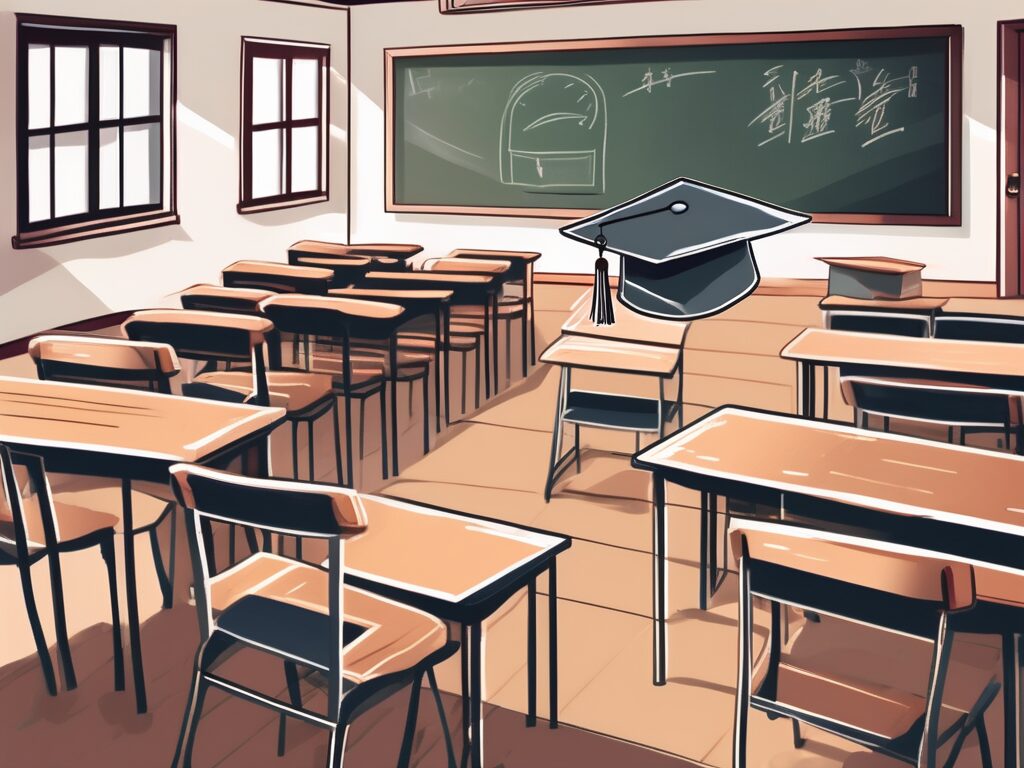In the realm of education, a Master’s degree is often seen as a golden ticket, a passport to greater opportunities and enhanced career prospects. This is especially true in a country like China, where education is highly valued and the demand for qualified teachers is high. However, even with a Master’s in Education, teachers in China may face certain challenges and weaknesses. In this piece, we will delve into five key areas where these weaknesses may lie.
1. Cultural Differences
One of the most significant challenges for teachers with a Master’s in Education in China is dealing with cultural differences. Though they may be highly educated and well-versed in teaching methodologies, they may struggle to fully understand and adapt to the nuances of Chinese culture.
For instance, the Chinese education system is known for its emphasis on rote learning and discipline, which may be a stark contrast to more Western pedagogical approaches that focus on creativity and independent thinking. This cultural gap can lead to misunderstandings and conflicts in the classroom, hindering the teacher’s effectiveness.
Comparative Analysis
Consider the case of a teacher from the UK, where the education system encourages students to question, debate, and think critically. In China, however, students are often expected to listen, absorb, and regurgitate information. This fundamental difference in teaching and learning styles can create a challenging environment for foreign teachers.
2. Language Barriers
Another significant hurdle for teachers with a Master’s in Education in China is the language barrier. While English is taught in schools across China, the level of proficiency varies greatly. This can make communication in the classroom challenging, particularly when trying to explain complex concepts or engage in deeper discussions.
Furthermore, a lack of fluency in Mandarin can make it difficult for teachers to fully engage with their students, colleagues, and the wider community. This can lead to feelings of isolation and hinder the development of strong relationships, which are crucial for a successful teaching career.
Overcoming Language Barriers
Many teachers find that taking Mandarin lessons can help bridge this gap. Not only does this enable them to communicate more effectively, but it also shows a willingness to engage with and respect the local culture. This can go a long way in building rapport with students and colleagues.
3. High Expectations
Teachers with a Master’s in Education in China often face high expectations from parents, students, and school administrators. This is partly due to the prestige associated with a Master’s degree, and partly due to the intense competition in the Chinese education system.
These high expectations can put a lot of pressure on teachers, leading to stress and burnout. It can also make it difficult for them to experiment with new teaching methods or take risks in the classroom, as they may fear failure or criticism.
Managing Expectations
It’s important for teachers to manage these expectations and set realistic goals for themselves and their students. This involves clear communication with parents and administrators about what can be achieved, and the recognition that learning is a process that takes time and patience.
4. Limited Resources
Despite the high value placed on education in China, resources can be limited, particularly in rural areas. This can make it difficult for teachers to implement the innovative teaching strategies they may have learned during their Master’s program.
For example, they may lack access to technology, up-to-date textbooks, or other teaching materials. This can limit their ability to provide a diverse and engaging learning experience for their students.
Maximising Available Resources
Despite these challenges, many teachers find creative ways to maximise the resources they do have. This might involve using local materials or cultural practices in their lessons, or finding free online resources to supplement their teaching.
5. Professional Development Opportunities
Finally, teachers with a Master’s in Education in China may find that professional development opportunities are limited. While their Master’s degree may open doors initially, ongoing training and development are crucial for staying current in the rapidly evolving field of education.
Without access to professional development, teachers may struggle to keep up with new teaching methods or changes in the curriculum. This can lead to stagnation and a lack of career progression.
Seeking Out Opportunities
Despite these challenges, it’s important for teachers to seek out opportunities for professional development. This might involve attending conferences, joining professional networks, or undertaking further study. By staying proactive and committed to their own learning, teachers can continue to grow and thrive in their careers.
In conclusion, while a Master’s in Education can provide many opportunities for teachers in China, it’s not without its challenges. By understanding and addressing these potential weaknesses, teachers can better navigate the Chinese education system and make a positive impact on their students’ lives.
Empower Your Teaching Career with The IQTS at UWE
Understanding the challenges highlighted in this article, The IQTS at UWE invites you to take control of your professional future. Our International Qualified Teacher Status (iQTS) Programme is designed to overcome barriers to qualification, enhance career progression, connect you with a global network of educators, and deepen your understanding of international curricula—all while offering the flexibility to balance work and study. Join the ranks of satisfied educators who have seen a 45% increase in promotion rates and a 30% salary boost. Make Your Next Step towards a more fulfilling teaching career with iQTS.

